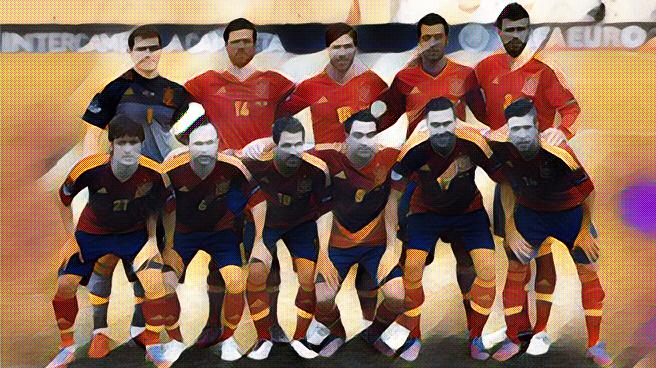Gerard Pique: How A National Football Legend Became Public Enemy Number One
Gerard Pique announced that he would retire from playing international football for Spain if his Catalonian identity was seen as a hindrance to the team.
This emphasised that political and regional identities can have a great allure to footballers, who in Pique’s case, can threaten to turn his back on a team that he has represented with considerable success.
Pique’s proud Catalonian roots have resulted in him being widely criticised and even jeered by Spanish fans, with some fans calling on him to quit the team.
This is a complete contrast to the adoration that the very same Spanish fans would have given to Pique when he was part of an incredibly successful Spanish side that won the 2010 World Cup as well as the 2012 European Championships.
Indeed, Pique has received over 90 caps for his country so far, and has been an integral part of a side that will surely go down as one of the best international sides of all time. His central defensive partnership with Carles Puyol was colossal, and was widely regarded as the most formidable partnership in the world after their performances for Spain in the 2010 World Cup.
Andres Iniesta, Xavi, Iker Casillas, David Villa, Sergio Ramos, Fernando Torres. It really was a golden era of Spanish football, and Pique should be forever associated with such a cultured, yet also domineering, side.
However, his political views could theoretically place all of this glory for Spain into jeopardy, and could completely tarnish his reputation in the eyes of many Spaniards. Given the abuse that Pique has already suffered, it would appear that his heroics for Spain over the years have already been mentally erased by some. This would potentially continue, even if he was to go on playing for Spain, and Catalonia also remained part of Spain.
Gerard Pique has done an awful lot for his national football team to justify being respected. Yet he was publicly vilified for announcing his Catalonia roots as if he had publicly binned his World Cup and European Championship medals in front of a disgusted national audience.
Politics should not interfere with football to the extent that someone will suddenly go from an idol to a traitor in the eyes of many. Pique should be embraced as a proud Catalonian, who is also prepared to be a loyal servant to his Spanish national side, whatever the final decision is on Catalonia’s independence.
There is no reason why someone cannot be accepted if they can legitimately play for a team, even if their political views may be regarded as unconventional or even controversial to that particular team. Why should Pique’s political views affect his ability to play football for a Spanish team that he has already been a loyal stalwart for?
Unfortunately, the decisive and, at times, violent nature of the Catalonia Independence referendum has left the situation with a sour taste, and has presented Pique as somewhat of a public scapegoat when it comes to Spanish football.
The fact that the match between Barcelona and Las Palmas had to be played behind closed doors, with thousands of fans being told they would not be allowed to watch the game they had paid good money for, highlighted the fact that political events can completely overshadow what takes place on the football field. Hopefully Pique’s Spanish footballing success does not also become overshadowed as that game was.
